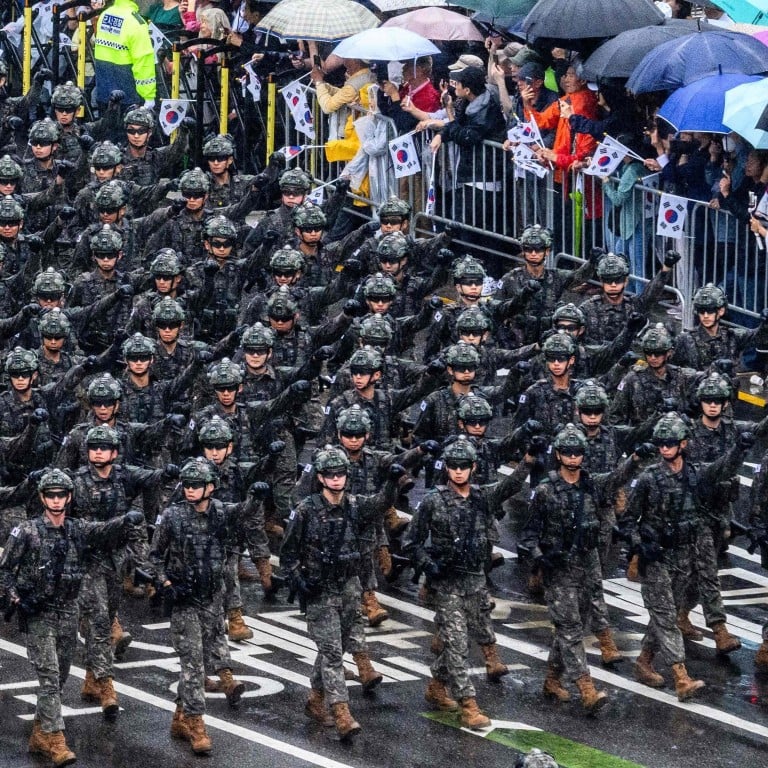
South Korea to conscript transwomen who have yet to complete more than 6 months of hormone therapy
- Seoul is reportedly pushing for it based on the belief transwomen could be able to complete supplementary service if they do not experience severe gender dysphoria
- The supplementary service requires all able-bodied men in South Korea to serve in the military for at least 18 months or do alternative service
South Korea’s defence ministry is seeking to conscript trans women, who were assigned as male at birth but identify as female, for supplementary service if they have not undergone more than six months of hormone therapy.
The ministry on Friday said it was working to revise an enforcement rule regarding the conscription examination. The revision is now at the stage of pre-announcement, which is a grace period created to allow for the collecting of public opinions regarding a bill before the National Assembly launches a review to vote.
South Korea’s short-haired women heckled, attacked as ‘antifeminism’ grows
According to the revision, men who are suffering from gender dysphoria, but have not been receiving hormone therapy regularly for six months or longer, will receive a grade of 4 in a draft physical examination. Gender dysphoria refers to a conflict between the sex assigned at birth and the gender one lives as.
Those who receive grade 4 in the seven-grade evaluation are not subject to enlistment as active duty soldiers but instead, serve alternative roles for social services, such as working at local community centres.
The country’s current rule for transgender people’s military service states that those who have received gender-affirming surgery and who are legally registered as women will not be subject to the conscription examination. Those who received surgery but have not registered as women will be given a grade of 5, which exempts them from military service.
For those who did not receive surgery but are suffering from gender dysphoria, the current rules give a grade of 5 to those who have been receiving hormone therapy regularly for six months or longer.
However, others who have not been undergoing hormone therapy, for at least six months, are given a grade of 7, meaning they are unable to be graded so they are subject to regular follow-up physical examinations. This has caused complaints from those who have to undergo the follow-up examinations on a regular basis.
South Korea’s preference for sons could see 800,000 men unable to marry locals
If the rule is revised, trans women who failed to receive regular hormone therapy have to complete a supplementary service period after finishing three weeks of basic military training at boot camp with male conscripts, most of which have no proper facilities for women.
After finishing their service, they will also have to participate in reserve forces training, alongside active duty servicemen. Due to this, civic groups argue that the revision will increase discrimination against sexual minorities within the military.
The defence ministry is reportedly pushing for the measure based on the belief that trans women could be able to complete supplementary service if they are not experiencing a severe level of gender dysphoria.
The ministry said it planned to make preparations so that trans women who qualify for supplementary service can undergo training in an environment with suitable conditions if the rules are revised.

